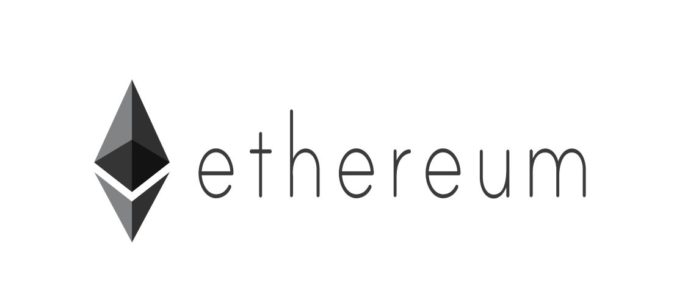What is Ethereum
Last Updated: 30th October 2018
Proposed by Vitalik Buterin in 2013, Ethereum is an open platform technology with a decentralized public blockchain. Developers can build and launch their own decentralized applications, or DApps, using smart contracts. The native asset of the Ethereum blockchain is known as Ether, or ETH, on cryptocurrency exchanges.
In the same way a car needs fuel to function, The Ethereum platform also needs fuel to operate. The fuel in this instance is Ether. Ether serves as a fee for any computations made on the Ethereum virtual machine (EVM) as well as an incentive mechanism to encourage cryptocurrency miners to secure and validate the Ethereum network.
The consensus mechanism that operates within the Ethereum protocol is known as proof-of-work (PoW). When a transaction is conducted on its network, it sits in the mempool until a miner includes it in a candidate block that they are constructing. In order for the miner to be eligible to add a block to the Ethereum blockchain, they must first solve a cryptographic puzzle. Attempting to solve the cryptographic puzzle signifies a commitment of economic resources which serves to make the Ethereum network more secure. Upon successfully solving the cryptographic puzzle, miners are rewarded with the protocol’s native digital asset, Ether. Miners are rewarded a total of 3 Ether for each valid block added to the Ethereum blockchain, and a total of 2.625 Ether for each uncle block produced.
Ethereum Virtual Machine (EVM)
The Ethereum Virtual Machine is a quasi-Turing complete system that can be mathematically proven to have the capability of performing any possible calculation or computer program if given sufficient gas, or Ether, to perform the given calculation. In other words, a quasi-Turing complete machine is mathematically able to solve any problem that is fed to it if given enough resources to do so.
The EVM is what allows a plethora of different applications to be built on top of the Ethereum blockchain. Applications are first written in its higher-level programming language, solidity, which is then compiled to the EVM bytecode, so applications can be executed.
Smart Contracts
The decentralized applications built on the Ethereum platform are done so using what are known as smart contracts.
Smart contracts are simply agreements that once met, will result in the execution of the contents of the contract. For example, if a buyer were to purchase a house, this process would involve multiple third parties such as estate agents and lawyers, who would be responsible for settling the purchase. However, with the use of a smart contract, the process need only involve the buyer and the seller. Once all the conditions are met, the smart contract would execute, and the money transferred to the seller’s bank account. In short, smart contracts serve to disintermediate middlemen in transactions concerning two or more parties.
The ability to create smart contracts is what gives the Ethereum protocol added functionality, particularly when compared to Bitcoin. Where Bitcoin was created solely to function as a digital currency, Ethereum is a platform created so developers can build a plethora of applications ranging from gaming applications to e-commerce applications. As previously mentioned, decentralized applications created on the Ethereum platform are written in Ethereum’s own programming language, solidity.
Decentralized Applications (DApps)
If the Ethereum blockchain is a decentralized app store, the applications built on top of the blockchain would be the decentralized apps.
Centralized applications such as, Facebook, YouTube and Twitter, require the flow of information to be controlled through a set of databases under these corporation's control. In effect, all users of these applications are dependent on a single entity to send and receive information. However, users of a decentralized application do not need to depend on a central entity in-order to send or receive information; the Ethereum virtual machine and blockchain disintermediates the entire process by allowing decentralized applications to execute any commands, and then record those executed commands on an immutable ledger.
An example of a decentralized application currently under development is Augur. Augur is a prediction market platform that runs on the Ethereum blockchain and can be thought of as something akin to a betting platform.
To elaborate, prediction markets are market places where users can go and trade on the outcome of an event. Such events can range from the winner of a football match, to the winner of the next US presidential election. These markets have very clear ways in which smart contracts could be implemented in order to make processes more trustless. One prime example is automating the payout method once the outcome of an event has been determined.
To illustrate, consider the scenario that Bob made a bet that Team A will win a football match. Conventionally, if Team A did win, a central party must be trusted to first determine that Team A did in fact win, as well as be trusted to pay Bob his winnings. However, with the use of smart contracts, this process can be completely automated. Funds would be stored in a smart contract which would then automatically payout depending on the outcome of the event. This setup has the benefit of eliminating counterparty risk, which would reduce the overall risk that Bob takes on when using prediction markets.
Ethereum Enterprise Alliance (EEA)
The EEA is a non-profit organisation that aims to connect Fortune 500 companies, academics, research groups and blockchain start-ups, with the goal of further integrating the use of smart contracts into real world processes.
There are over 150 members in the EEA. Members range from technology companies to financial institutions such as: J.P. Morgan, Microsoft, Intel and MasterCard.
Additional Resources
More information can be found at the Ethereum Project website.
A list of all the decentralized applications being built on Ethereum blockchain can be found at State of The DApps. In addition, DApp Board is a smart contract analytic platform that allows users to track the usage of various applications built on the Ethereum blockchain.




